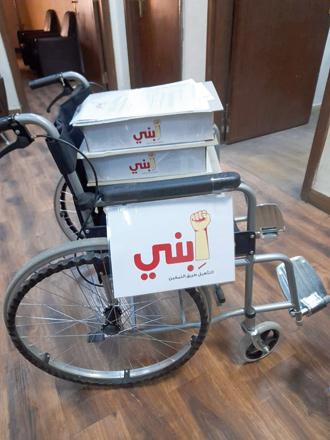You are here
Online store sells plants to support, empower people with disabilities
By Maria Weldali - Jul 12,2021 - Last updated at Jul 12,2021

Anas Damra started Fasila, a non-profit online store, in honour of his younger sister Islam, who has Down Syndrome (Photo courtesy of Fasila Instagram page)
AMMAN — Fasila, a non-profit online store, sells plants to support and empower people with disabilities in the Kingdom.
“Fasila is like a seed from which many people will benefit in the near future,” Anas Damra, the founder of Fasila, told The Jordan Times on Monday.
Damra said he started the online store in honour of his younger sister Islam, who has Down Syndrome.
Down Syndrome is a chromosomal condition — individuals with Down Syndrome have 47 chromosomes instead of the usual 46.
The online store, which opened on July 4, 2021, “aims to establish a specialised training centre for people with disabilities in 2022 with the money from Fasila,” according to Damra.
He added that “there will be a committee made of a group of volunteer specialists in different fields including: Special education, occupational therapy, speech therapy and behaviour modification.”
“We decided on this project after being left with no choice,” said Damra. Islam, now 20 years old, started by assisting with 30 per cent of the work for the project. Now in only a short time, she does almost 90 per cent of the work, he said.
The online store has a tree logo with 47 leaves, which reflect the chromosomes of Down Syndrome, according to the Fasila Instagram page.
Damra, who is familiar with disability matters, noted that they are working to empower people with disabilities, in addition to helping them increase their independence.
Related Articles
AMMAN — The Jordanian “Ibni” campaign is on a mission to extend the frontiers of people with disabilities’ health rights.Established in 2020
AMMAN — The Cabinet on Wednesday decided to appoint new members of the board of trustees of the Higher Council for the Affairs of People wit
AMMAN — A group of activists earlier this week handed Health Minister Nathir Obeidat a petition signed by 12,000 individuals demanding the i














